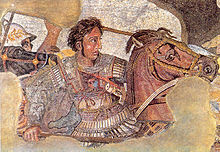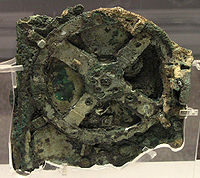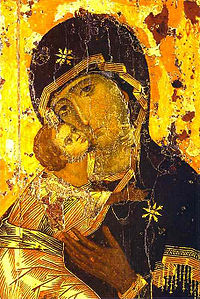GREECE AND ITS HISTORY
Greece officially the Hellenic Republic,is a country in Southeast Europe.Athens is the nation's capital and largest city, its metropolitan area also including the municipality of Piraeus. According to the 2011 census, Greece's population is slightly less than 11 million.
Greece is located at the crossroads of Europe, Asia and Africa and has land borders with Albania, the Republic of Macedonia and Bulgaria to the north, and Turkey to the northeast. The Aegean Sea lies to the east of mainland Greece, the Ionian Sea to the west, and the Mediterranean Sea to the south. Greece has the 11th longest coastline in the world at 13,676 km (8,498 mi) in length, featuring a vast number of islands (approximately 1,400, of which 227 are inhabited), including Crete, the Dodecanese, the Cyclades, and the Ionian Islands among others. Eighty percent of Greece consists of mountains, of which Mount Olympus is the highest at 2,917 m (9,570 ft).
Modern Greece traces its roots to the civilization of Ancient Greece, generally considered the cradle of Western civilization. As such, it is the birthplace of democracy, Western philosophy, the Olympic Games, Western literature and historiography, political science, major scientific and mathematical principles, and Western drama,rope and 13th in the world. The modern Greek state was established in 1830, following the Greek War of Independence.
Greece is a founding member of the United Nations, has been a member of what is now the European Union since 1981 (and the eurozone since 2001) and has been a member of NATO since 1952.Greece is a developed country with an advanced,high-income economy and very high standards of living, including the 21st highest quality of life as of 2010. Greece's economy is also the largest in the Balkans, where Greece is an important regional investor.
NAME
Greece's name differs in comparison with the names used for the country in other languages and cultures, just like the names of the Greeks. Although the Greeks call the country Hellas or Ellada and its official name is Hellenic Republic, in English the country is called Greece, which comes from Latin Graecia as used by the Romans and literally means 'the land of the Greeks', and derives from the Greek name of grekos however, the name Hellas is sometimes used in English too.
History
From the earliest settlements to the 3rd century B.C.

The earliest evidence of human presence in the Balkans, dated to 270,000 BC, is to be found in the Petralona cave, in the northern Greek province of Macedonia.Neolithic settlements in Greece, dating from the 7th millennium BC,are the oldest in Europe by several centuries, as Greece lies on the route via which farming spread from the Near East to Europe.
Greece is home to the first advanced civilizations in Europe and is considered the birthplace of Western civilization,beginning with the Cycladic civilization on the islands of the Aegean Sea at around 3200 BC,the Minoan civilization in Crete (2700–1500 BC),and then the Mycenaean civilization on the mainland (1900–1100 BC).These civilizations possessed writing, the Minoans writing in an undeciphered script known as Linear A, and the Myceneans in Linear B, an early form of Greek. The Myceneans gradually absorbed the Minoans, but collapsed violently around 1200 BC, during a time of regional upheaval known as the Bronze Age collapse.This ushered in a period known as the Greek Dark Ages, from which written records are absent.
The end of the Dark Ages is traditionally dated to 776 BC, the year of the first Olympic Games.The Iliad and the Odyssey, the foundational texts of Western literature, are believed to have been composed by Homer in the 8th or 7th centuries BC.With the end of the Dark Ages, there emerged various kingdoms and city-states across the Greek peninsula, which spread to the shores of the Black Sea, Southern Italy (Latin: Magna Graecia, or Greater Greece) and Asia Minor. These states and their colonies reached great levels of prosperity that resulted in an unprecedented cultural boom, that of classical Greece, expressed in architecture, drama, science, mathematics and philosophy. In 508 BC, Cleisthenes instituted the world's first democratic system of government in Athens.
By 500 BC, the Persian Empire controlled territories ranging from what is now northern Greece and Turkey all the way to Iran, and posed a threat to the Greek states. Attempts by the Greek city-states of Asia Minor to overthrow Persian rule failed, and Persia invaded the states of mainland Greece in 492 BC, but was forced to withdraw after a defeat at the Battle of Marathon in 490 BC. A second invasion followed in 480 BC. Despite a heroic resistance at Thermopylae by Spartans and other Greeks, Persian forces sacked Athens. Following successive Greek victories in 480 and 479 BC at Salamis, Plataea and Mycale, the Persians were forced to withdraw for a second time. The military conflicts, known as the Greco-Persian Wars, were led mostly by Athens and Sparta. However, the fact that Greece was not a unified country meant that conflict between the Greek states was common. The most devastating intra-Greek war in classical antiquity was the Peloponnesian War (431–404 BC), which marked the demise of the Athenian Empire as the leading power in ancient Greece. Both Athens and Sparta were later overshadowed by Thebes and eventually Macedon, with the latter uniting the Greek world in the League of Corinth (also known as the Hellenic League or Greek League) under the guidance of Phillip II, who was elected leader of the first unified Greek state in history.
Following the assassination of Phillip II, his son Alexander III ("The Great") assumed the leadership of the League of Corinth and launched an invasion of the Persian Empire with the combined forces of all Greek states in 334 BC. Following Greek victories in the battles of Granicus, Issus and Gaugamela, the Greeks marched on Susa and Persepolis, the ceremonial capital of Persia, in 330 BC. The Empire created by Alexander the Great stretched from Greece in the west and Pakistan in the east, and Egypt in the south. Before his sudden death in 323 BC, Alexander was also planning an invasion of Arabia. His death marked the collapse of the vast empire, which was split into several kingdoms, the most famous of which were the Seleucid Empire and Ptolemaic Egypt. Other states founded by Greeks include the Greco-Bactrian Kingdom and the Greco-Indian Kingdom in India. Although the political unity of Alexander's empire could not be maintained, it brought about the dominance of Hellenistic civilization and the Greek language in the territories conquered by Alexander for at least two centuries, and, in the case of parts the Eastern Mediterranean, considerably longer.
Hellenistic and Roman periods

After a period of confusion following Alexander's death, the Antigonid dynasty, descended from one of Alexander's generals, established its control over Macedon by 276 B.C., as well as hegemony over most of the Greek city-states.From about 200 BC the Roman Republic became increasingly involved in Greek affairs and engaged in a series of wars with Macedon.Macedon's defeat at the Battle of Pydna in 168 signaled the end of Antigonid power in Greece.In 146 B.C. Macedonia was annexed as a province by Rome, and the rest of Greece became a Roman protectorate.The process was completed in 27 B.C. when the Roman Emperor Augustus annexed the rest of Greece and constituted it as the senatorial province of Achaea.Despite their military superiority, the Romans admired and became heavily influenced by the achievements of Greek culture, hence Horace's famous statement: Graecia capta ferum victorem cepit ("Greece, although captured, took its wild conqueror captive").Greek science, technology and mathematics are generally considered to have reached their peak during the Hellenistic period.Greek-speaking communities of the Hellenized East were instrumental in the spread of early Christianity in the 2nd and 3rd centuries,and Christianity's early leaders and writers (notably St Paul) were generally Greek-speaking,[50] though none were from Greece. However, Greece itself had a tendency to cling on to paganism and was not one of the influential centers of early Christianity: in fact, some ancient Greek religious practices remained in vogue until the end of the 4th century,with some areas such as the southeastern Peloponnese remaining pagan until well into the 10th century AD.
Medieval period

The Roman Empire in the east, following the fall of the Empire in the west in the 5th century, is conventionally known as the Byzantine Empire (but was simply called "Roman Empire" in its own time) and lasted until 1453. With its capital in Constantinople, its language and literary culture was Greek and its religion was predominantly Eastern Orthodox.[53] From the 4th century, the Empire's Balkan territories, including Greece, suffered from the dislocation of the Barbarian Invasions. The raids and devastation of the Goths and Huns in the 4th and 5th centuries and the Slavic invasion of Greece in the 7th century resulted in a dramatic collapse in imperial authority in the Greek peninsula.Following the Slavic invasion, the imperial government retained control of only the islands and coastal areas, particularly cities such as Athens, Corinth and Thessalonica, while some mountainous areas in the interior held out on their own and continued to recognize imperial authority.Outside of these areas, a limited amount of Slavic settlement is generally thought to have occurred, although on a much smaller scale than previously thought.
The Theotokos of Vladimir, a well-known example of 12th century Byzantine art
The Byzantine recovery of lost provinces began toward the end of the 8th century and most of the Greek peninsula came under imperial control again, in stages, during the 9th century.This process was facilitated by a large influx of Greeks from Sicily and Asia Minor to the Greek peninsula, while at the same time many Slavs were captured and re-settled in Asia Minor and those that remained were assimilated.[55] During the 11th and 12th centuries the return of stability resulted in the Greek peninsula benefiting from strong economic growth – much stronger than that of the Anatolian territories of the Empire.Following the Fourth Crusade and the fall of Constantinople to the "Latins" in 1204 most of Greece quickly came under Frankish rule (initiating the period known as the Frankokratia) or Venetian rule in the case of some of the islands.The re-establishment of the Byzantine Empire in Constantinople in 1261 was accompanied by the recovery of much of the Greek peninsula, although the Frankish Principality of Achaea in the Peloponnese remained an important regional power into the 14th century, while the islands remained largely under Genoese and Venetian control.
In the 14th century much of the Greek peninsula was lost by the Empire as first the Serbs and then the Ottomans seized imperial territory.By the beginning of the 15th century, the Ottoman advance meant that Byzantine territory in Greece was limited mainly to the Despotate of the Morea in the Peloponnese.After the fall of Constantinople to the Ottomans in 1453, the Morea was the last remnant of the Byzantine Empire to hold out against the Ottomans. However, this, too, fell to the Ottomans in 1460, completing the Ottoman conquest of mainland Greece.With the Turkish conquest, many Byzantine Greek scholars, who up until then were largely responsible for preserving Classical Greek knowledge, fled to the West, taking with them a large body of literature and thereby significantly contributing to the Renaissance.
By George Karvounis-Kostas Kolokas


